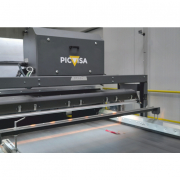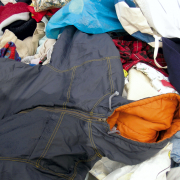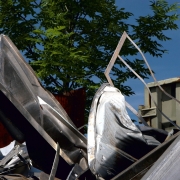European Recyclers’ Recommendations for an EU Circular Economy
Exploring Chemical Recycling when no better recycling alternative available.
EuRIC, the European Recycling Industries’ Confederation has issued a roadmap for boosting waste recycling and fostering a clear regulatory framework. The paper reflects EuRIC’s unwavering commitment to advancing sustainability within the recycling industry, with a particular focus on exploring the areas of chemical recycling and mass balance.
To enhance resource efficiency and sustainability, EuRIC:
- Highlights the critical role of design for recycling and calls for a closer link between design considerations and end-of-life treatment, but also collection, sorting and other intermediate steps of the value chain.
- Acknowledges a complementary role for chemical recycling alongside mechanical recycling, particularly for certain plastics and rubber applications, as well as for fibre-to-fibre textiles recycling.
- Highlights chemical recycling’s potential for closed-loop recycling in textiles and tyres.
- Calls for a regulatory framework for post-consumer recycled material in various new production cycles (e.g., plastics, textiles, tyres) regardless of the recycling technology used. Proposed measures include mandatory recycled content, Green Public Procurement (GPP), and taxing virgin materials to incentivise recycling.
- Recommends expediting standardisation methods and prioritising a risk-based approach in recycled outputs and applications over total chemical content, to ensure the integrity of recycled materials.
- Advocates for the recognition of an EU-wide End-of-Waste status for key materials, including plastics, ELT-derived rubber, recycled carbon black, textiles, streamlining regulatory processes and enhancing the competitiveness of recycled materials.
- Opposes the use of mass balance accounting (MBA) with a fuel use exclusion allocation method for chemical recycling when superior recycling options are available. We advocate for a transparent and rigorous credit-based approach to uphold the circular economy’s integrity. An MBA with fuel use exclusion allocation may be considered only if no better recycling alternatives exist.
In conclusion, EuRIC’s proposed framework aligns with the vision of a sustainable and circular European economy, encouraging responsible practices, innovation, and the reduction of environmental impacts. EuRIC remains dedicated to collaborating with stakeholders and policymakers to transform these recommendations into actionable initiatives that drive positive change within the EU’s circular economy.
For more information: EuRIC Position Paper September 2023
Source: EuRIC (Brussels, September 21, 2023)







